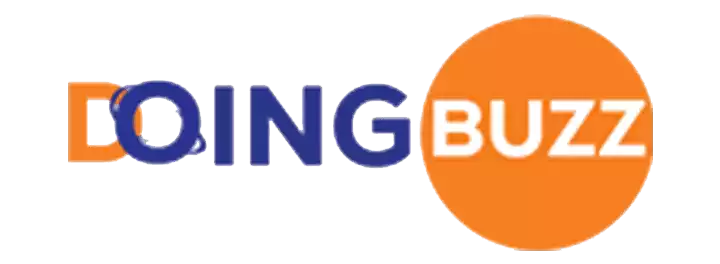UNICEF recruits 01 Nutrition Specialist (Partnership & Coordination), P4
Nutrition Specialist (Partnership & Coordination), P4, Niamey, Niger (Generic Vacancy Announcement)
Job Number: 523215 | Vacancy Link
Locations: Africa: Niger
Work Type : Fixed Term Appointment
Nutrition Specialist (Partnership & Coordination), P4, Niamey, Niger (Generic Vacancy Announcement)
UNICEF works in some of the world’s toughest places, to reach the world’s most disadvantaged children. To save their lives. To defend their rights. To help them fulfill their potential.
Across 190 countries and territories, we work for every child, everywhere, every day, to build a better world for everyone.
And we never give up.
For every child, passion.
Niger is a landlocked country of 20.7 million people, most of whom live in rural areas (84%). The population is young, with 52% of Nigeriens being under 15. Nearly half of the population is poor (45.1%), despite reductions in the poverty rate over the past decade. The country, which ranked 187/188 on the 2016 Human Development Index, sees its development constrained by several factors: climatic conditions that hinder rural development, vulnerability due to the absence of economic diversification, high population growth, gender equality issues, low levels of literacy and education, and the size and landlocked nature of the country, which obstruct the provision of essential goods and services to the population.
In addition, Niger is confronted to recurrent crises. For many years, the country has suffered from chronic food insecurity, and faced food and nutrition crises in 2010 and 2012. It also regularly experiences epidemics, including cholera, as well as floods. Moreover, instability in the region has in recent years led to insecurity and population displacement, especially in the eastern part of the country.
Niger relies strongly on external support provided by technical and financial partners, such as non-refundable aid, budget support and loans. With the exception of the education sector, budgetary allocations to social sectors remain far below international recommendations or national commitments.
How can you make a difference?
On behalf of the IASC Humanitarian Coordinator and UNICEF as the lead agency for the IASC Nutrition Cluster and in collaboration with the Ministry of Health, the Nutrition sector/cluster Coordinator will facilitate a timely and effective nutrition response and ensure that the capacity of national and local institutions is strengthened to respond to and coordinate emergency and transitional nutrition interventions that are effective and context specific.
In addition, with the recent official endorsement of a National Policy for Nutrition Security (PNSN) and it’s multisectoral plan of action for Nutrition, the Nutrition sector/cluster Coordinator will play a key role in steering one of the technical working groups of the PNSN hosted under the President’s Initiative “les Nigériens Nourrissent les Nigériens†(i3N).Â
Niger being a signatory country of the Scaling Up Nutrition (SUN) Movement, the Nutrition Technical Working Group animated by the Nutrition sector/cluster Coordinator will foster synergies with and between the different SUN networks under the umbrella of the PNSN governance mechanism and encourage partnerships across various sectors and coordination platform toward Nutrition goals.
Key functions, accountabilities and related duties/tasks:
1. Strengthen Nutrition coordination
Support the Nutrition Directorate of the MoPH to maintain and expand partnerships among nutrition stakeholders, ensure a functional coordination mechanism for Nutrition through notably facilitation of Technical Working Groups’meetings, knowledge and information management and sharing and ensure the full participation of current nutrition sector partners. Identify additional key partners for the Nutrition sector response, taking into account their respective mandates and program priorities. Carry out and maintain up to date a capacity mapping of all current and potential actors – government, national and international humanitarian and development organizations as well as national institutions, the private sector, etc. Provide relevant information in order to adequately communicate with donors, NGOs, government and other stakeholder on the nutrition programme needs and services.
2. Promote and support governance mechanism that aligns humanitarians and development goals for Nutrition
Invigorate sector coordination mechanisms at national and sub-national levels including working groups (IMAM, IYCF, micronutrients, survey/monitoring and evaluation, etc.). Establish a regular communication with regional coordination bodies for Nutrition and decentralized multisectoral platforms and ensure that their needs are adequately taken into account. Secure commitments from Nutrition stakeholders in responding to needs and filling gaps, ensuring an appropriate distribution of responsibilities within the sector. Ensure full integration of the IASC’s agreed priority cross-cutting issues, namely human rights, HIV/AIDS, age, gender and environment, utilization participatory and community-based approaches while embracing longer term and sustainable Nutrition actions. In line with this, promote gender equality by ensuring that the needs, contributions and capacities of women and girls as well as men and boys are addressed. Promote emergency and lifesaving response actions at times of chocs/stresses while at the same time strengthening the integration of Nutrition into the health system. Ensure appropriate coordination between all Nutrition partners working both on treatment and prevention of under-nutrition, as well as national authorities and local structures. Ensure effective links with other sectors, especially Health, WASH, Agriculture and Livelihoods and Education. Represent the interests of the Nutrition in discussions with the Humanitarian Coordinator as well as donors on prioritization, resource mobilization and advocacy. Act as focal point for inquiries on the Nutrition’s response plans and operations.
3. Planning and strategy development
Contribute to situation and gap analysis and monitoring of the nutrition situation. Contribute to the Inter-Cluster Coordination Group’s work of toward humanitarian’s needs evaluation. Lead and coordinate the Nutrition Technical Group’s analysis toward developing the annual Humanitarian Needs Overview document and to define the Humanitarian Response Plan for the Nutrition sector Develop/update agreed response strategies and action plans for the Nutrition /sector and ensuring that these are adequately reflected and aligned to the overall country strategies. Contribute to resources mobilization for the Nutrition sector notably through facilitation of CERF funds allocation decision and development for CERF proposals. Drawn lessons learned from past activities and revising strategies and action plans accordingly. Contribute to defining transition strategy toward strengthened capacity of the Nutrition Directorate to lead and steer an effective sector coordination.
4. Monitoring and reporting
Provide an analytical interpretation of best available information in order to benchmark progress of the Nutrition programs over time. Ensure regular reporting against the Nutrition sector indicators of service delivery and support analysis of the Nutrition sector in closing gaps and measuring impact of interventions. Ensure the Technical Nutrition Working Group’s work done at capital level also benefit and trickle down to regional and district levels and ensure adequate knowledge and information management in collaboration with the UNICEF Nutrition Specialist in charge of the information management and health information system strengthening.
5. Application of standards
Ensure that Nutrition sector participants are aware of and up-to-date with relevant policy guidelines, technical standards and relevant commitments that the Government/concerned authorities have undertaken under international human rights law. Ensure that the Nutrition sector responses are in line with existing policy guidance, technical standards, and relevant Government human rights legal obligations.
6. Advocacy and resource mobilization
Identify core advocacy concerns, including resource requirements, and contribute key messages to broader advocacy initiatives of the Humanitarian Coordinators and other actors. Advocate for donors to fund Nutrition actors to carry out priority activities in the sector concerned, while at the same time encouraging Nutrition stakeholders to mobilize resources for their activities through the usual channels. Act as the focal point for reviewing and ensuring quality control for all the Nutrition project submitted for Flash Appeal, CERF and other funding mechanisms.
7. Training and capacity building of national/local authorities and civil society
Promote and support capacity building initiatives and build the capacity of all the Nutrition partners informed by learning needs assessments and/or gap analysis. Support efforts to strengthen the capacity of the national/local authorities and civil society.
To qualify as a champion for every child you will have…
An advanced university degree in one of the following fields is required:Â nutrition, public health, nutritional epidemiology, global/international health and nutrition, health/nutrition research, policy and/or management, health sciences, nutritional epidemiology, or another health-related science field.
A minimum of eight years of professional experience in a developing country in one or more of the following areas is required: nutrition, public health, nutrition planning and management, or maternal, infant and child health/nutrition care.
Experience in health/nutrition programme/project development and management in a UN system agency or organization is an asset.
Fluency in English and French is required. Knowledge of another official UN language or local language of the duty station is considered as an asset.
For every Child you demonstrate…
UNICEF’s core values of Commitment, Diversity and Integrity and core competencies in Communication, Working with People and Drive for Results.
Functional Competencies:
Leading and supervising (I)
Formulating strategies and concepts (II)
Analyzing (III)
Relating and networking (II)
Deciding and Initiating action (II)
Applying technical expertise (III)
View UNICEF competency framework at http://www.unicef.org/about/employ/files/UNICEF_Competencies.pdf
UNICEF is committed to diversity and inclusion within its workforce, and encourages all candidates, irrespective of gender, nationality, religious and ethnic backgrounds, including persons living with disabilities, to apply to become a part of the organization.
UNICEF has a zero-tolerance policy on conduct that is incompatible with the aims and objectives of the United Nations and UNICEF, including sexual exploitation and abuse, sexual harassment, abuse of authority and discrimination. UNICEF also adheres to strict child safeguarding principles. All selected candidates will, therefore, undergo rigorous reference and background checks, and will be expected to adhere to these standards and principles.
Remarks:
* Mobility is a condition of international professional employment with UNICEF and an underlying premise of the international civil service.
* Only shortlisted candidates will be contacted and advance to the next stage of the selection process.
Closing Date Tue Jul 02 2019 23:55:00 GMT+0100 (Afr. centrale Ouest)




